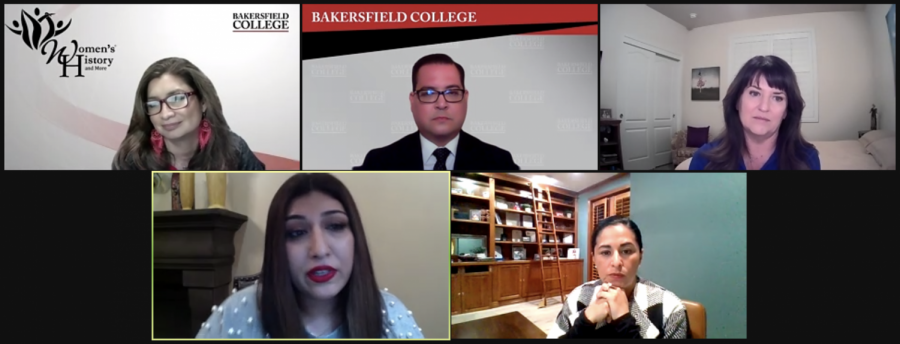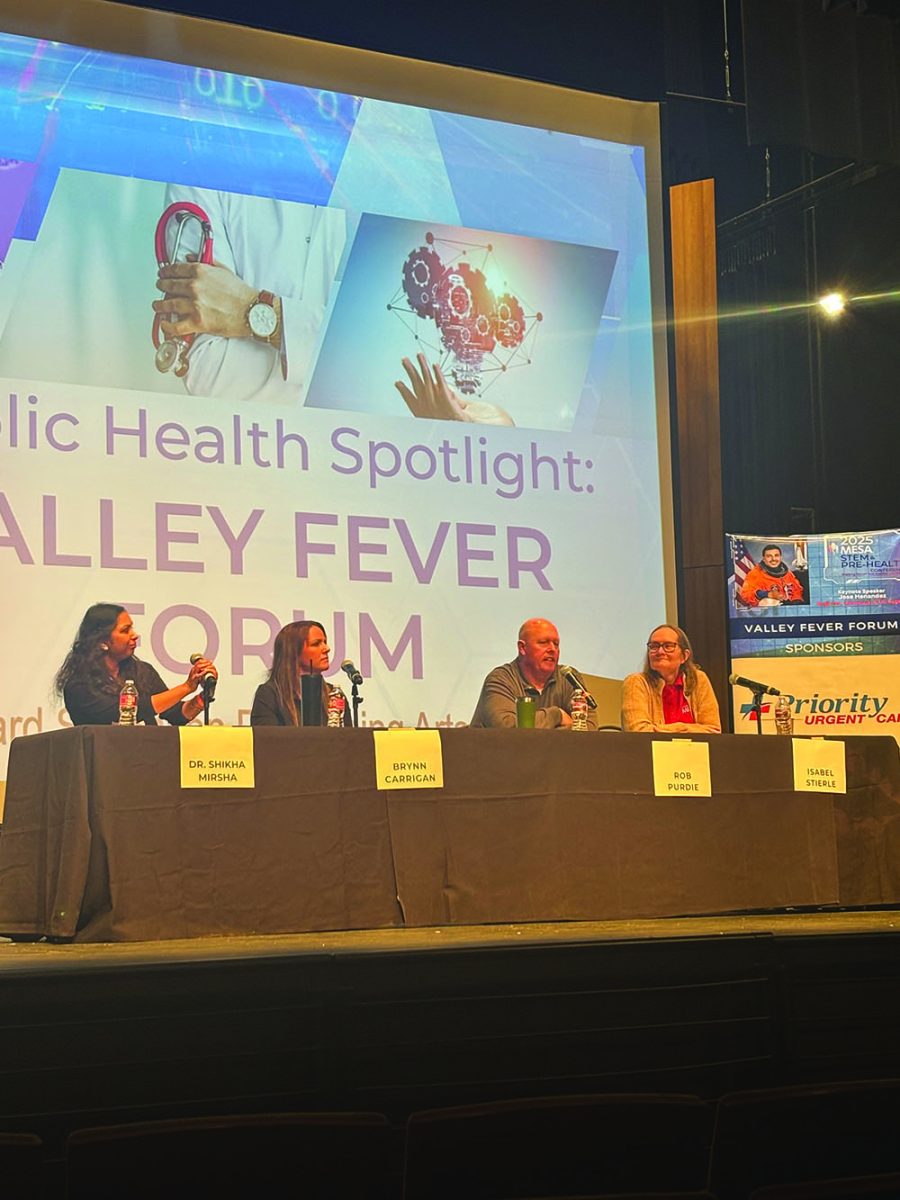BC hosts a panel discussing the COVID-19 vaccine
April 5, 2021
Bakersfield College Latinas Unidos hosted a virtual dialogue called “A Dialogue About COVID-19: The Vaccine & Your Health” on March 24.
The event was put together by the Bakersfield College Women’s History and More (WHAM), and the Office of Student Life at Bakersfield College.
The dialogue was organized by Olivia Garcia, professor of history at Bakersfield College. The panelists were Michelle Corson, the Program Manager/Public Relations Officer for the Kern County Public Health Services Department, Connie Perez-Andreesen, the Chief Administrative Officer for United Farm Workers, Jay Tamsi, Co-Founder of the Latino Covid-19 Task Force and President/CEO of the Kern County Hispanic Chamber of Commerce, as well as Bianca Torres, the Hotline Manager of the Kern County Latino COVID-19 Taskforce Hotline.
The themes covered in the dialogue were: Latino COVID-19 Task Force, Public Health vaccine, COVID-19 and Mental Health Hotline, and your Physical Health; Farmworker Outreach; and Women-specific Health Impact.
First, the panelists were asked about how COVID-19 impacted the work they do within the organizations they serve.
Tamsi explained how they had to learn new techniques to get by. “We had to shift direction and help our community. If we did not help the community, and we did not focus on outreach, awareness, and campaigns, our Latino community would not understand what was going on, and how serious it was. So, we completely shifted,” Tamsi said.
Corson talked about how they worked hard on providing the most accurate information to the public. “The goal of public health is to protect the health and slow the spread of any communicable disease which COVID-19 is. That is why we literally dropped everything. Every employee in all our divisions their jobs changed immediately to COVID–related duties,” Corson said.
“Our world was turned upside down when this happened in March. We immediately shifted our priorities to wanting to protect our staff but also our farmworkers. When we were forced to work from home it was a seamless transition because the staff was trained to do everything without using tons of paper,” Perez-Andreesen said.
Then, the panelists were asked about their thoughts about which vaccine to take; Johnson & Johnson, Moderna, or Pfizer.
The panelists explained the importance of getting the COVID-19 vaccines for immunity regardless of the brand. “Protection is protection, and if Pfizer is available then go get that one. If Moderna is available get that one, and if Johnson & Johnson is available then go get that one because you’re going to be protected with all three,” Torres said.
They also were surprised about how popular Johnson & Johnson vaccine is when they thought people would reject it because it has a lower effectiveness rate in comparison to Pfizer and Moderna. “Johnson & Johnson is one dose and convenient for a lot of folks,” Corson said.
The panelists were also asked to explain if the vaccines have side effects.
Torres explained that body aches are normal symptoms of COVID-19. “Once you get vaccinated, you’re introducing your body into a forged object basically, and so your body’s first response is to fight and when your body is fighting it means you are getting fevers, chills, all flu–like symptoms and that is why you may have symptoms afterward,” Torres said.
The last question was whether the panelists encountered common myths in regards to the vaccine.
“We have been hearing that the vaccine has a chip. It’s a tracking device or that it’s going to leave a devil’s mark,” Perez-Andreesen said.
Tamsi said that the biggest myth he heard is that the future children of vaccinated parents will have autism.
Michelle added that some people think that COVID-19 is fake, and masks don’t work.






